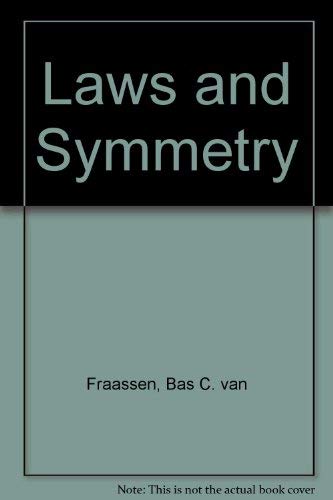Items related to Laws and Symmetry

Synopsis
This treatise presents an argument that no metaphysical account of laws can succeed. The author analyzes and rejects the arguments that there are laws of nature, or that we must believe that there are. He argues that we should discard the idea of law as an inadequate clue to science. After exploring what this means for general epistemology, the book develops the empiricist view of science as a construction of models to represent this phenomena. The text explores concepts of symmetry, transformation and invariance to illuminate the structure of such models. A central role is played in science by symmetry arguments, and it is shown how these function also in the philosophical analysis of probability.
"synopsis" may belong to another edition of this title.
Review
`innovative if not provocativePhilosophical Quarterly of Israel, Vol 22, No 3-5 Dec 93
`a marvelously clear and incisive exposition of the problems facing definitions of laws of natureThe Philosophical Review, Vol 102, No 3 (July 1993)
`the real excitement and power of the book comes from the new perspective it brings.' Times Higher Education Supplement
`I wholeheartedly recommend this book. There are many things to be learnt from it, not least its incisive criticisms of "more metaphysical" theories of laws. The work is executed with great erudition and panache.'Peter Menzies, Australian National University
About the Author
Bas C. van Fraassen is at Princeton University.
"About this title" may belong to another edition of this title.
- PublisherClarendon Press
- Publication date1989
- ISBN 10 0198248113
- ISBN 13 9780198248118
- BindingHardcover
- LanguageEnglish
- Number of pages410
(No Available Copies)
Search Books: Create a WantCan't find the book you're looking for? We'll keep searching for you. If one of our booksellers adds it to AbeBooks, we'll let you know!
Create a Want
